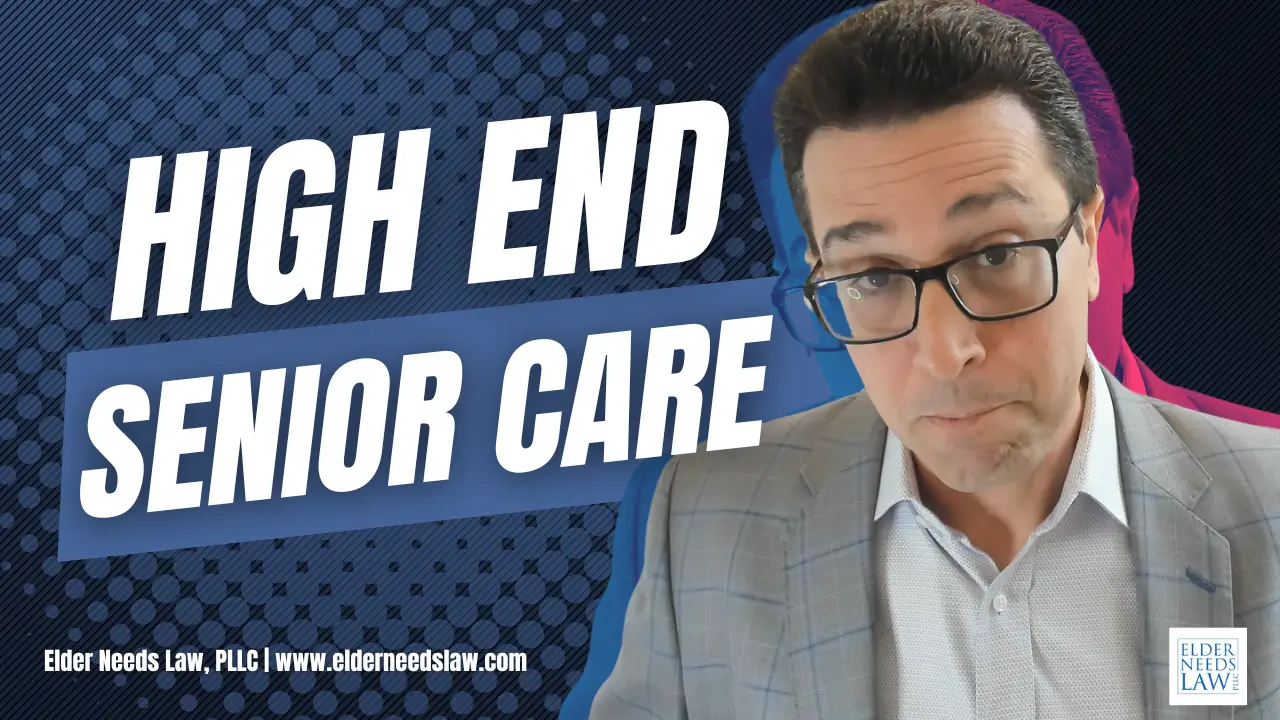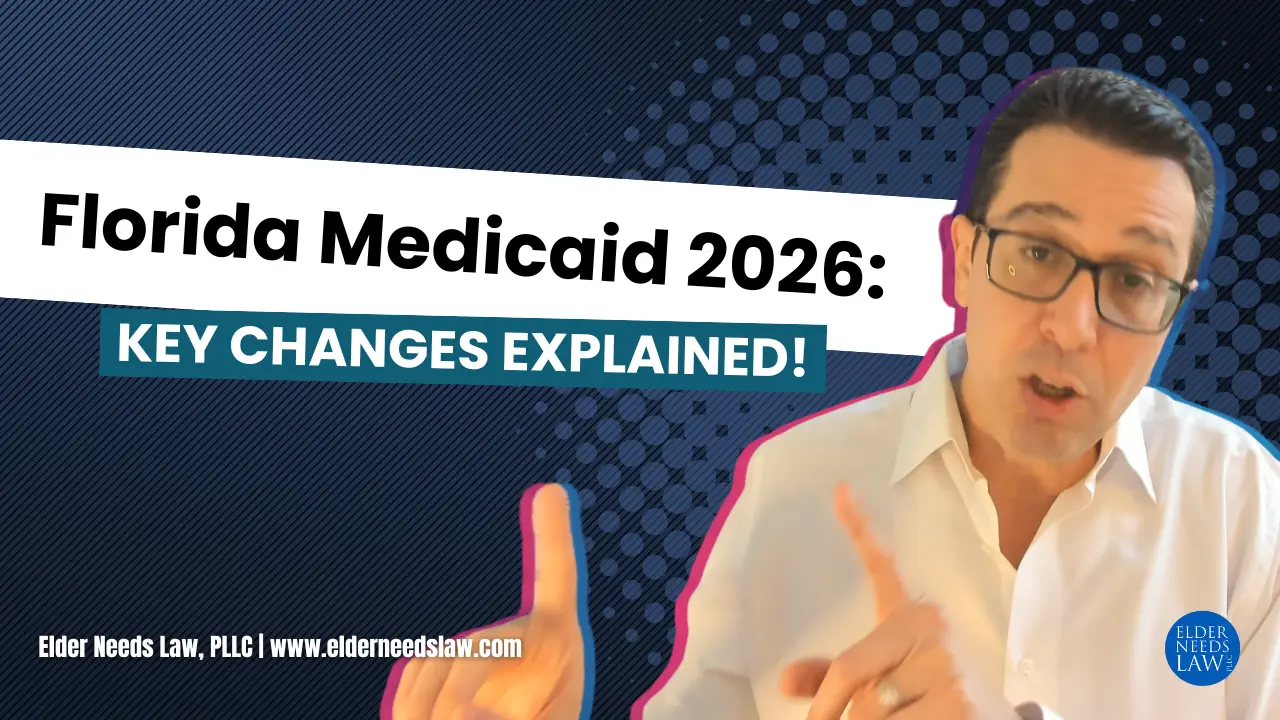Income Sources Counted by Florida Long Term Care Medicaid

Which Income Sources Does Medicaid Count When Determining Eligibility for Florida Long Term Care Benefits
In addition to the Florida Medicaid Asset Test, a long-term care applicant must also pass the Medicaid Income Test. Florida is an "income cap" state, which means that if total income, from all sources, exceeds the income cap (which changes from time-to-time), a qualified income trust will be needed. It’s important to note that your income is higher than the amount of money that is deposited into your bank account. Even if your only source of income is social security retirement income, the amount deposited into your bank account does not include the $174.00 that is likely being automatically deducted to pay for Medicare Part B premiums (as of 2024).
You may also pay an additional amount for your Medicare Advantage Plan or Medicare Supplement.
You may pay even more for Florida life insurance premiums, alimony and/or maybe even child support.
Just because some of these items may be deducted from your IRS income tax calculations, does NOT mean that DCF wont include them when they are assessing Florida Medicaid Long-Term Care benefits eligibility calculations.
The DCF / Medicaid case worker wants to see proof of gross income (before everything is deducted) from all sources of income to determine whether a Florida Medicaid applicant is eligible for Florida Medicaid Waiver (to pay for a portion home health care or ALF care) or Medicaid ICP benefits (to pay for Florida nursing home care).
The DCF / Medicaid caseworker adds up all gross income, from all sources to determine if the Medicaid long term care applicant passes the Medicaid income test ($2,829.00 from all sources as of 2024. Note that there is a Medicaid Asset Test you have to pass as well (but that is the subject for another article).
As an illustrative example: In 2024, if your net income (i.e. the amount you see go into your bank account every month) is $2,700.00, I would bet that you do not currently pass the Medicaid Income Test. While your net income is only $2,700.00, your gross income is probably $2,874.00 after adding back in the Medicare Part B Premiums that are automatically taken out of your social security retirement check.
Because $2,874.00 is more than the 2024 Medicaid Income Cap (important: the income cap number changes periodically), a qualified income trust (also known as a “Miller Trust”) will be necessary to pass the Medicaid Income Test portion of the eligibility determination.
Other Income Sources that Florida Medicaid Will Include
In addition to social security income, the following is a list of other common income sources that are included when determining home and community based medicaid waiver and ICP Medicaid (nursing home medicaid) program eligibility.
- Retirement Account Income (e.g. distributions from an IRA or 401k)
- Disability Payments (including Social Security Disability and Social Security Income)
- Workers Compensation Payments
- Annuity Income
- Rental Real Estate Income
However, only net rental income will be included in the total income calculation for eligibility purposes. This means that certain ordinary expenses can be deducted from gross rents such as taxes, debt interest, utility payments, maintenance expenses, repairs, cost of advertising for renters, lawn service, homeowners insurance and up to 10% to a property manager.
Some other income sources that DCF will consider countable are:
- Principal portion of mortgage payment and capital expenditures for improvements may NOT be deducted from gross rents in the Medicaid income calculation.
- Support / Alimony Payments received
- Dividends and Interest unless $10.00 or less.
- Other investment income
- Mortgage/Promissory Note that are not-excluded as assets: Principal portion of payment is included, interest is excluded.
- VA Pension Payments
Income That is Not Included in Florida Long Term Care Medicaid Eligibility Determinations
There are certain limited income sources that the Medicaid Waiver and Institutional Care Program will not incorporate into their income cap calculation:
- Interest on CD’s are excluded
- Developmental Disability Payments (i.e. SILA payments are excluded)
- Veterans Benefits: VA Pensions are included, but the Housebound Allowance and Aid and Attendance Portion is excluded
- Gifts from third parties are excluded if infrequent or irregular (e.g. one-time cash gifts for birthdays, Christmas are not included unless it is anticipated on a regular basis).
- Non Cash / In-Kind Benefits: i.e. if a third party pays for food, clothing, etc… the value of those benefits are not included in the income calculation.
Is my Pension Income Included in the Medicaid Eligibility Calculation?
I get this question a lot. The general answer is yes. Medicaid is looking at government pension and private pension income as well as other sources of income. It is again important to stress that the larger “gross” number is what is included. Some pensions automatically deduct for life insurance or supplemental health insurance premium benefits. You have to add those expenses back into the gross pension number. Then add that number to all other income sources as well when calculating income for Medicaid waiver or ICP Medicaid eligibility calculations and to determine whether a Medicaid income trust (i.e. qualified income trust, QIT or miller trust) is needed.
The only form of pension that is not included in income calculation is the housebound allowance and aid and attendance portions of a VA Improved Pension (again the basic VA pension portion is included).
Medicaid Income Test Resources
Florida ESS Policy Manual on Treatment of Income for Medicaid Eligibility
If a qualified income trust (QIT) is needed, this article explains how miller trust funds can be spent.







